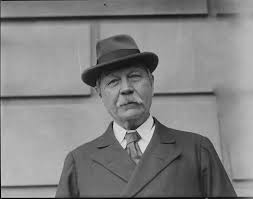With the dramatic changes that have been taking place in the publishing industry over the last few years, it’s easy to forget that some very solid, set in stone rules do still apply where books are concerned. One of those key areas is in copyright, which can be a sensitive issue in terms of anthologizing or crafting new stories based on decades-old characters and works.
A US judge has just issued a ruling that clarifies the bounds of copyright where characters are concerned, including down to the elements that the original author introduced and at what time. In a landmark decision, Chief Judge Rubén Castillo of the United States District Court of the Northern District of Illinois declared that the works of Sir Arthur Conan Doyle in respect to the Sherlock Holmes mysteries no longer required licensing fees for use, as long as the new work only contained elements of the stories and characters’ lives that were published before 1923. Any concept or element that Conan Doyle wrote after 1923 is still subject to copyright licensing.
The minutia involved comes down to even such side information as where Dr. Watson went to school or how many wives he had. An article in the New York Times points to Dr. Watson having played rugby for a specific team in his youth, a fact that Conan Doyle did not have the character share until a much later story. That single piece of information would be off-limits to authors writing fan fiction today, for example, and could not be incorporated into a modern author’s story unless permission was granted and a licensing fee paid to the estate of Sir Arthur Conan Doyle.
The legal battles surrounding the world of Sherlock Holmes have a history almost as interesting as the books themselves. An entity called the Conan Doyle Estate, Ltd., was established years ago to represent the author’s heirs and their interests, as a small number of other people and businesses at different points owned the rights to some of the more than fifty works the author wrote. Muddying the understanding of the rights to the series even further is the fact that all of the Sherlock Holmes mysteries are already in the public domain in the UK.
The ruling comes as a result of two editors who look to release an anthologized collection of modern-era stories involving Holmes, but the publisher had originally backed out of the release due to demands for a licensing fee from the estate.
Mercy Pilkington is a Senior Editor for Good e-Reader. She is also the CEO and founder of a hybrid publishing and consulting company.

